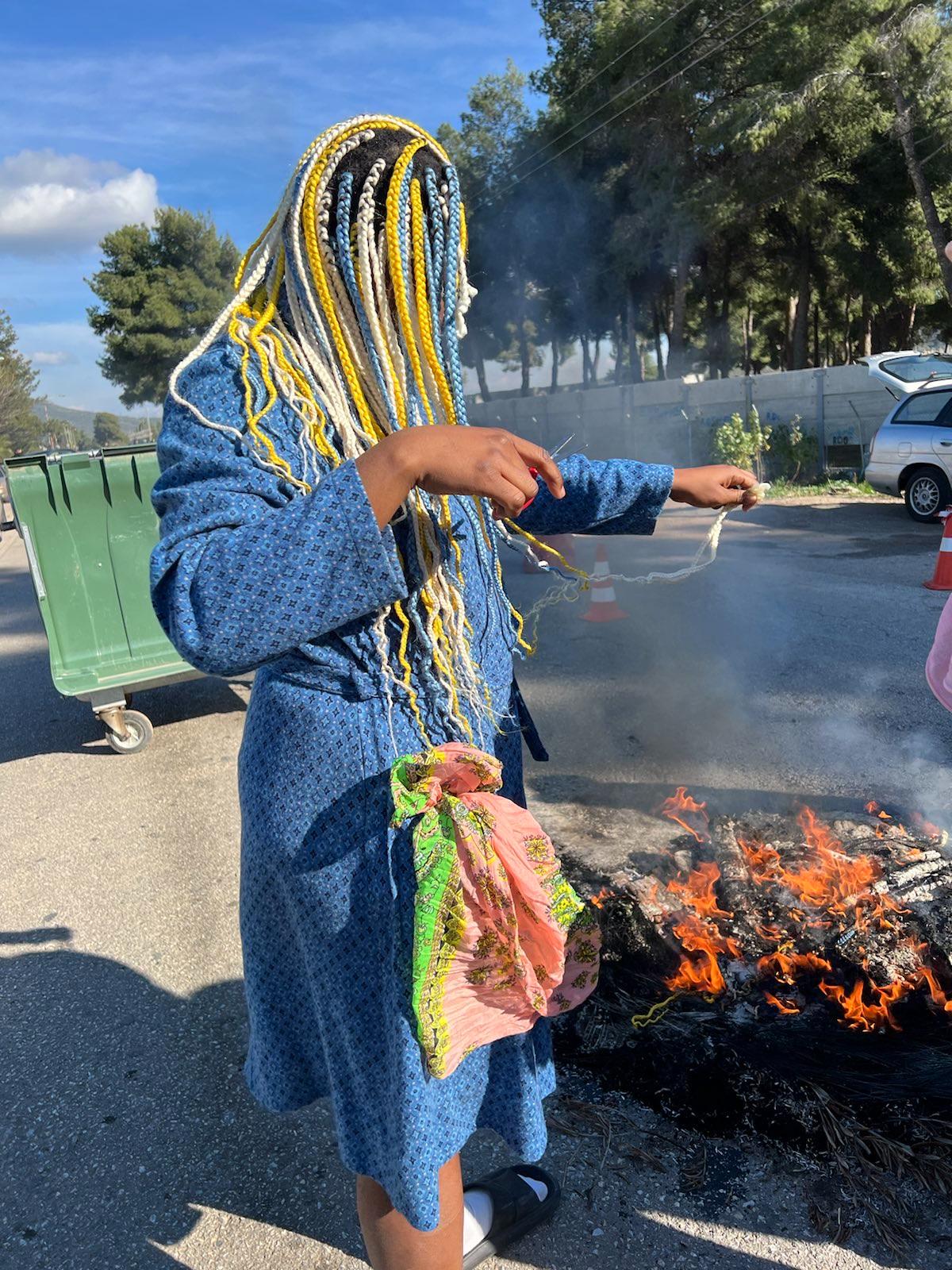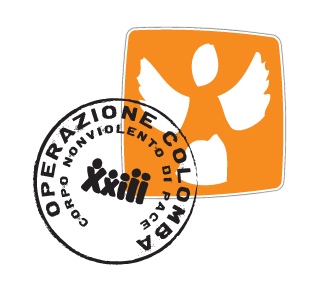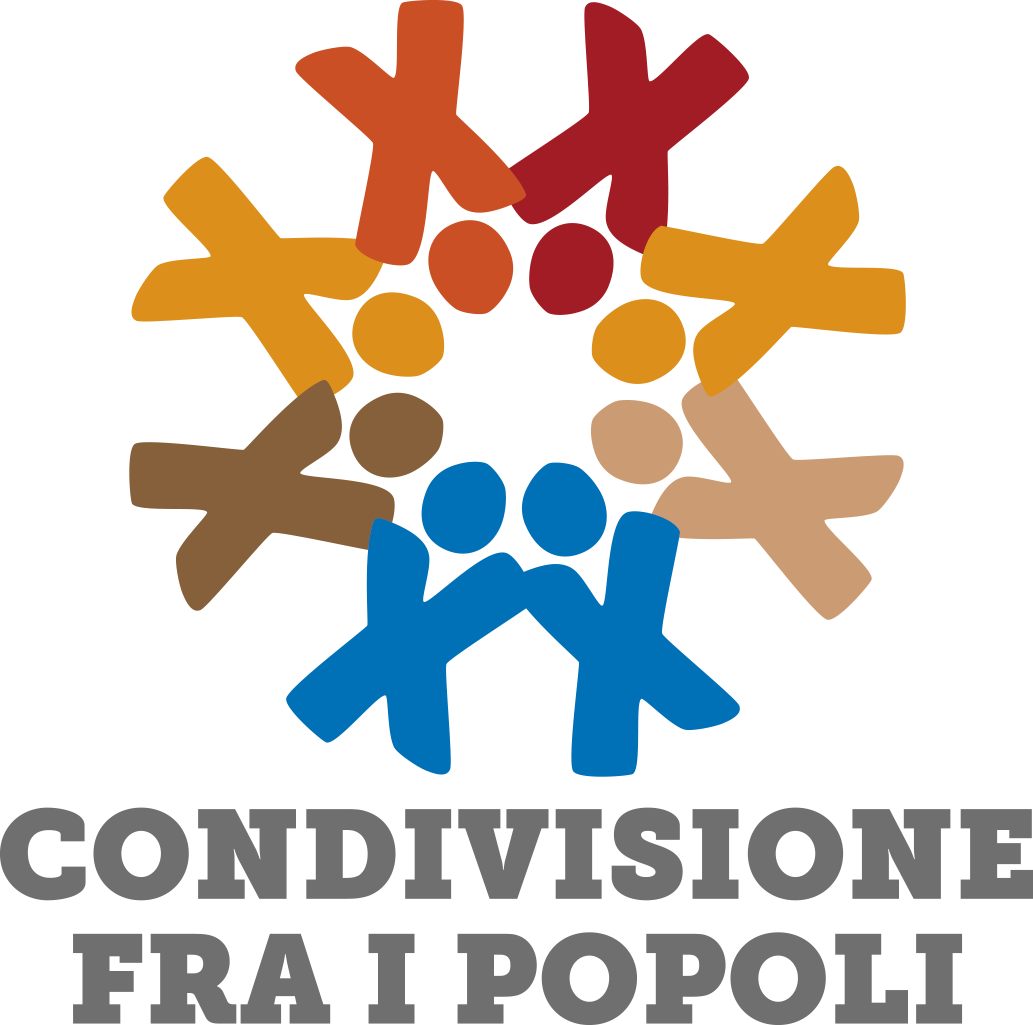 When J., our friend who lives in Ritsona camp, video-calls us, we do not immediately understand what she is saying, but we see she is outside the camp with many other people. We hear a big confusion in the background and we perceive from her voice that she is worried.
When J., our friend who lives in Ritsona camp, video-calls us, we do not immediately understand what she is saying, but we see she is outside the camp with many other people. We hear a big confusion in the background and we perceive from her voice that she is worried.
No doubt: something is happening at the camp and we need to be there; we do not wait longer and immediately take the car.
The police stops us few kilometers from the camp because the way was closed, we leave the car and go forward by foot: our friends are waiting for us and we want to be there with them.
Once we arrive we see many Congolese people outside the camp, especially women; some of them shout, some others cry, some pick up rubber pieces to light a fire: “a guy’s dead, he has four kids”, they say, “it’s just carelessness, this is mere racism”.
They say the evening before they called the ambulance at 5 p.m. but it only came in the morning, when it was too late.
He died in the meantime.
“There’s no food, there’s no water, no international protection, this is the result, people die in here”, women voices keep shouting and saying to Congolese people to come out.
They lit a fire using the objects they find on the street (rubbers, pillows, clothes), nothing stops them.
When the weeds are over, a woman cuts her hair and throws it into the fire, as a symbol of the fire burning inside them which is not easy to put out.
They are told to come back in, to talk, to decide what to do.
Women take our hands and bring us in, “ce sont les italiens, ce sont nos amis” (these are the Italians, these are our friends), they shout when the security guards say we cannot enter.
They lead us in the middle of the crowd, they want us to listen too, to moderate, to take videos or even just to show us where they live, or rather where they are forced to live.
The manager of the camp doesn’t allow us to stay, we apologize to our new friends and hug them, promising to meet each other soon.
C.

 OPERAZIONE COLOMBA
OPERAZIONE COLOMBA
